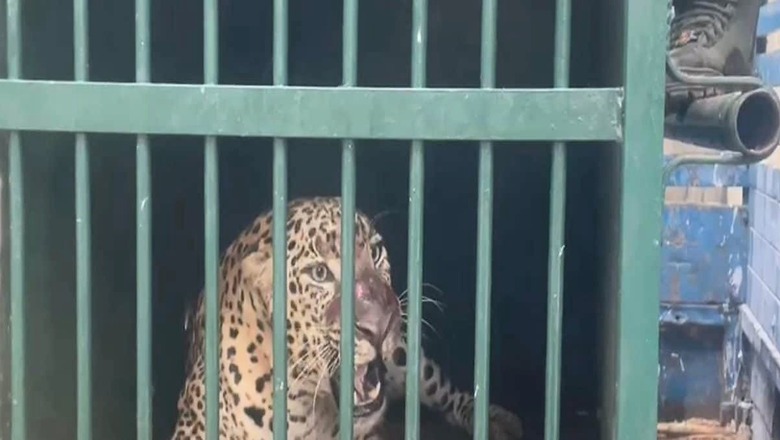
views
A nine-day workshop is being held for officials from law enforcement agencies in India, Bhutan and Nepal to train them in curbing wildlife trafficking in South Asia.
The first Training of Trainers (ToT) workshop under this project commenced on November 21 at Dehradun in Uttarakhand and will culminate on November 29 in New Delhi, officials said.
TRAFFIC India and WWF-India, in collaboration with the South Asia Wildlife Enforcement Network (SAWEN) and Wildlife Crime Control Bureau (WCCB) of the Government of India have organised this workshop.
The project aims at strengthening and building the capacity of law enforcement agencies in Bhutan, India and Nepal by focusing on strengthening the participants’ knowledge and skills in curbing wildlife trafficking in the region, a joint statement by the organisers said.
The event is being attended by 34 officials, ten each from Bhutan, India, Nepal, and two each from Bangladesh and Sri Lanka.
The officials are from various law enforcement agencies in their country, including forest and customs departments, police and para-military forces, the statement said. Jag Mohan Sharma, IFS, Director, Indira Gandhi National Forest Academy, and Virendra Tiwari, IFS, Director, Wildlife Institute of India inaugurated the workshop.
This nine-day training workshop will be conducted by resource persons from WCCB, National Crime Bureau, Centre for Cell and Molecular Biology (CCMB), Forest Research Institute (FRI), Wildlife Institute of India (WII), among other subject experts from India.
“This regional workshop has been carefully designed considering the evolving scenario of illegal wildlife trade. The training focuses on increasing interdiction of the illegal wildlife trade, building investigative and enforcement capabilities to handle trans-boundary issues, and enhancing cross-border coordination,” HV Girisha, IFS, Additional Director, WCCB said.
“As a specialist organisation working on curbing wildlife crime in India, WCCB will lead the execution of this regional workshop, Girisha added.
Various sessions planned during the training include an overview of wildlife crime and illegal wildlife trade in South Asia, Convention on International Trade in Endangered Species (CITES) and its implementation, coordination for tackling wildlife crime in Asia, learnings from the successes of conservation, role of rangers and investigators, cybercrime and cyber forensics, the statement said.
The attendees of the workshop are also being trained to understand how human-wildlife conflict fuels wildlife crime and illegal trade and how to conduct wildlife forensics and seizure of live animals, among other topics, it added.
Various other initiatives under this regional project include conducting capacity building for trainers, national capacity building for law enforcement, introduction to new tools and technologies, and support for more effective prosecution and judiciary work, the release said.
The project will support officials in Bangladesh, Bhutan, India, Nepal, and Sri Lanka and will help strengthen SAWEN as the primary regional organisation combating wildlife trafficking, it added.




















Comments
0 comment